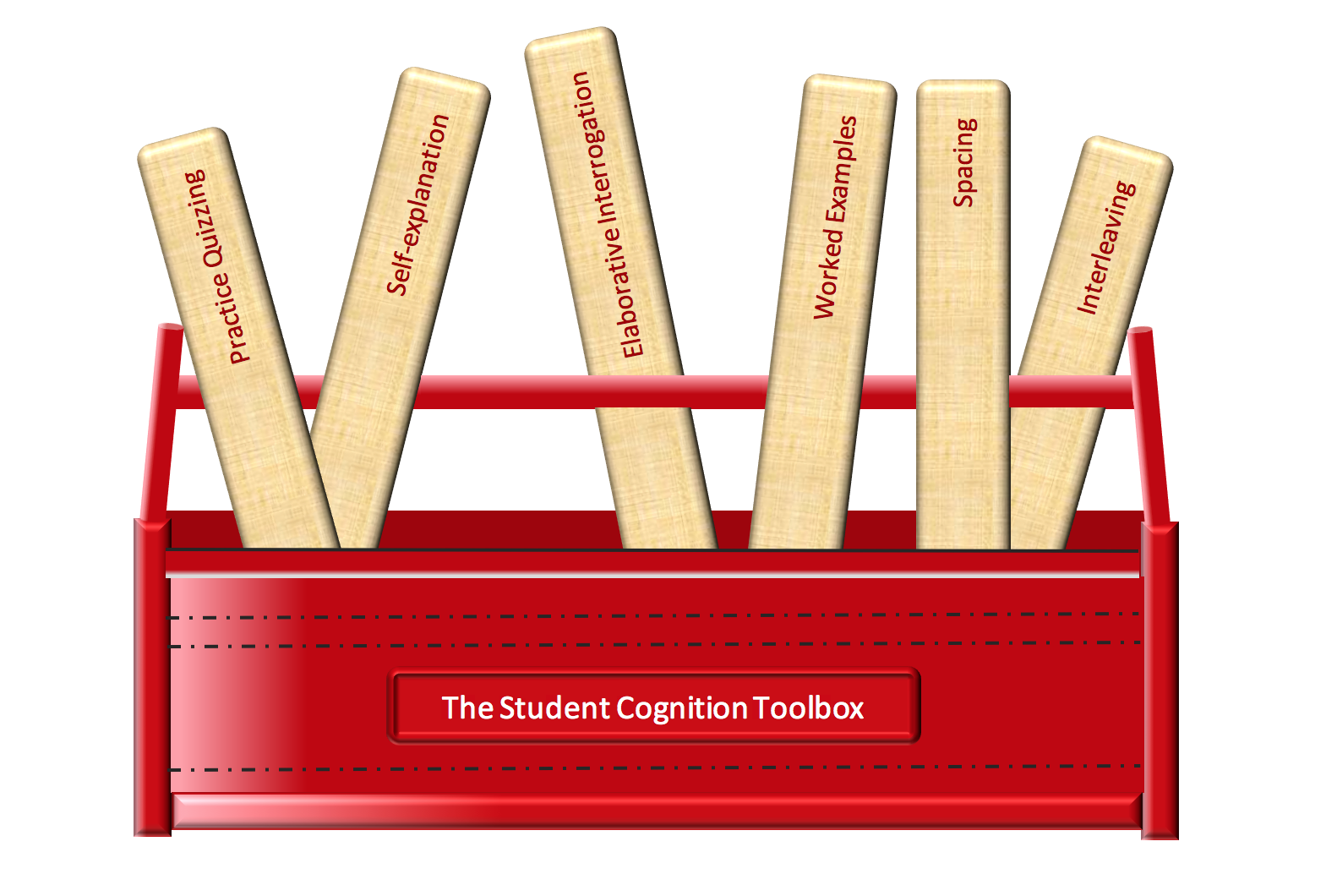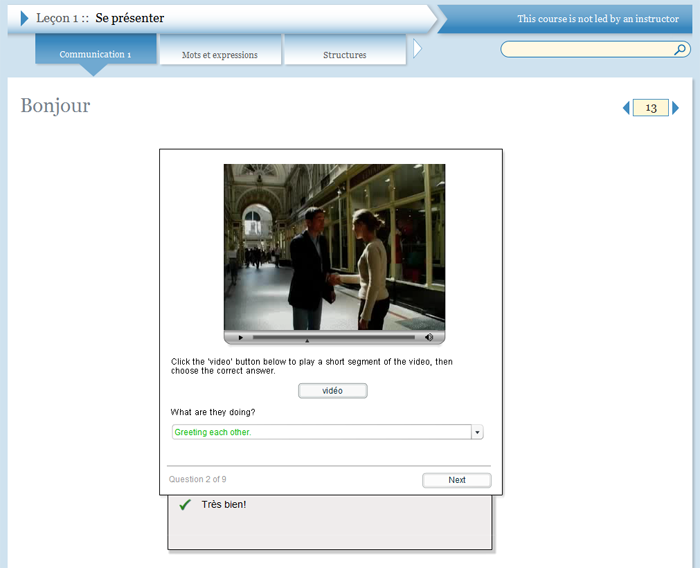The Student Cognition Toolbox (SCT) is a short course companion (or “sidecar”) introducing and providing direct practice in study strategies that are informed by learning science research. In this version of the SCT, material from introductory chemistry is used to illustrate the application of the study strategies. This version draws from material in CMU OLI’s General Chemistry course.
Chemistry Study Skills: The Student Cognition Toolbox — Open & Free
- Description
- Open & Free features
- Learning objectives
- What students will learn
- Course assessments, activities, and outline
- Other course details
- System requirements
Description
The Student Cognition Toolbox provides detailed information about study strategies that are informed by research on the science of learning. Use of the study strategies described in the Student Cognition Toolbox has been shown by research to benefit student learning. Strategies included are: Practice Quizzing, Self-Explanation, Elaborative Interrogation, Worked Examples, Spaced Practice, and Interleaved Practice. Students will learn how to apply these approaches to the study of the academic material they are assigned to learn in their Introduction to Chemistry course. All of the strategies addressed in the Student Cognition Toolbox can be effective tools as students work to learn course material and prepare for exams and other assessments.
Open & Free features
Open & Free Courses
- Open & Free OLI courses enable independent learners to study a subject on their own terms, at their leisure. Courses are:
- Self-guided.
- Self-paced.
- Self-supported.
- Open & Free courses include only the learning materials:
- No teacher.
- No tests.
- No college credit.
- No certificate of completion.
- *If your teacher gave you a Course Key, do not use an Open & Free course because your teacher will never see your work.
Learning objectives
- Identify learning circumstances appropriate for worked examples
- Obtain student feedback responses on interleaving
- Identify learning circumstances appropriate for practice quizzing
- Apply summaries to study material
- Evaluate efficacy of Spaced Practice training
- Apply worked examples to study material
- Obtain student feedback responses on practice quizzing
- Apply elaborative interrogation to study material
- Obtain student feedback responses on self explanation
- Apply practice quizzing to study material
- Evaluate efficacy of practice quizzing reading training
- Obtain student feedback responses on spacing
- Evaluate efficacy of interleaving reading training
- Describe elaborative interrogation
- Describe worked examples
- Obtain student feedback responses on Summaries
- Summaries Review
- Apply spaced practice to study material
- Evaluate efficacy of Introductory Module
- Describe practice quizzing
- Describe interleaved practice
- Evaluate efficacy of summaries training
- Class Identification
- Obtain student feedback responses on worked examples
- Evaluate efficacy of worked examples reading training
- Identify learning circumstances appropriate for spaced practice
- Classify Study Behaviors
- Describe Summaries
- Apply self-explanation to study material
- Evaluate efficacy of elaborative interrogation reading training
- Apply interleaved practice to study material
- Reflect on the Introductory Module
- Review Specific Study Strategies
- Obtain student feedback responses on elaborative interrogation
- Describe spaced practice
- Identify learning circumstances appropriate for summaries
- Describe self-explanation
- Evaluate efficacy of self-explanation reading training
- Identify learning circumstances appropriate for elaborative interrogation
- Identify learning circumstances appropriate for interleaved practice
- Reflecting on the Student Cognition Toolbox Modules
- Identify learning circumstances appropriate for self-explanation
What students will learn
By the time they finish this course, students will be able to:
- Obtain a personalized inventory of their study strategies.
- Identify learning circumstances appropriate for each study strategy.
- Evaluate the efficacy of different study strategies.
- Apply effective study strategies for the context of what they need to learn.
Course assessments, activities, and outline
Students complete a Study Behavior Inventory to determine their study behavior as they responded to items on the survey, reflecting their current reported use of particular study strategies.
In each of the eight modules, students:
- engage in practice activities
- read information
- watch videos
- respond to Learn By Doing practice questions
- reflect on what you’ve learned through the My Response prompts
Other course details
System requirements
OLI system requirements, regardless of course:
- internet access
- an operating system that supports the latest browser update
- the latest browser update (Chrome recommended; Firefox, Safari supported; Edge and Internet Explorer are supported but not recommended)
- pop-ups enabled
- cookies enabled
Some courses include exercises with exceptions to these requirements, such as technology that cannot be used on mobile devices.
This course’s system unique requirements:
- None



